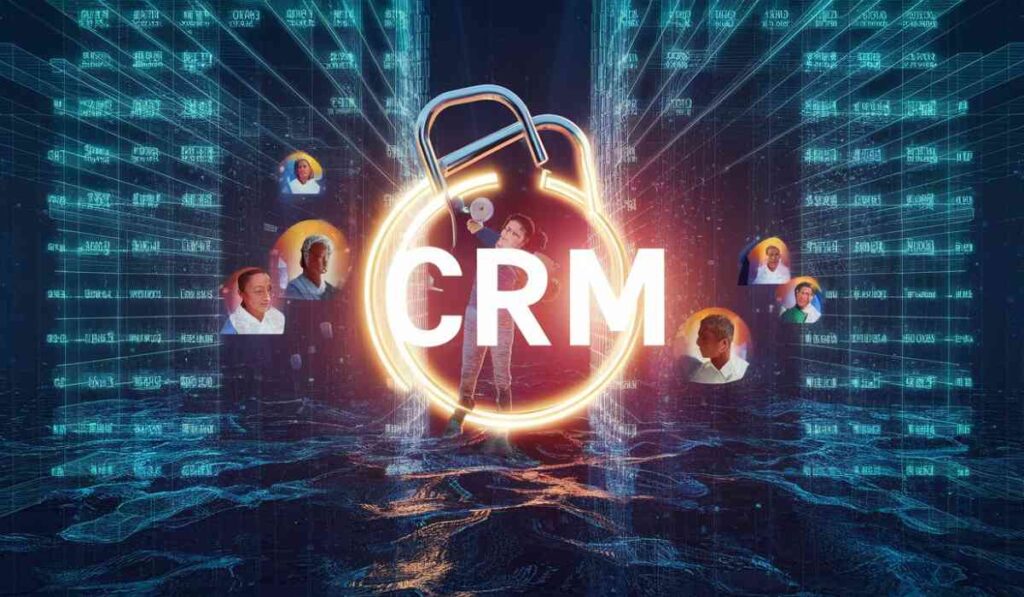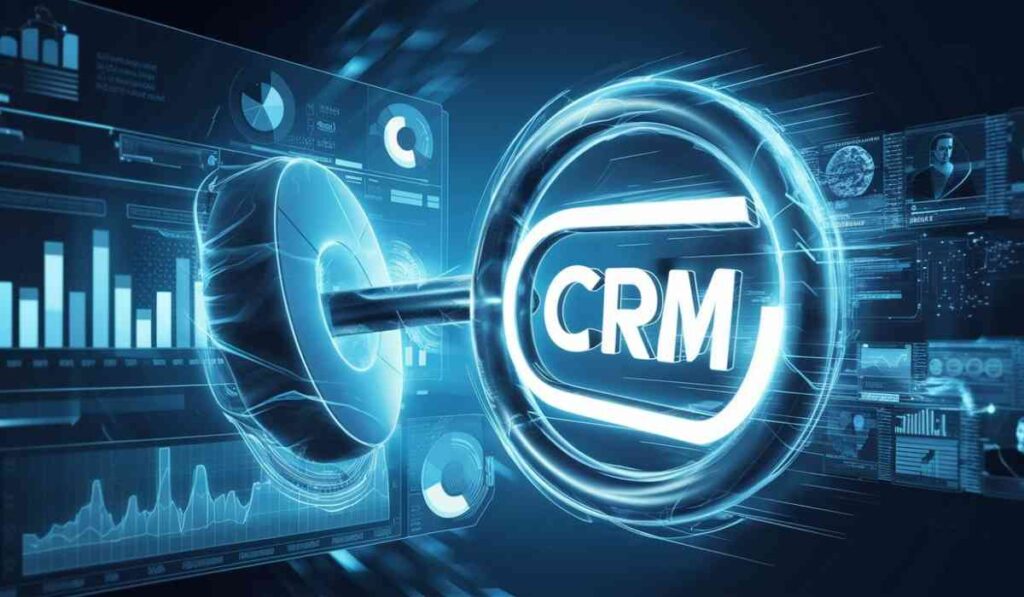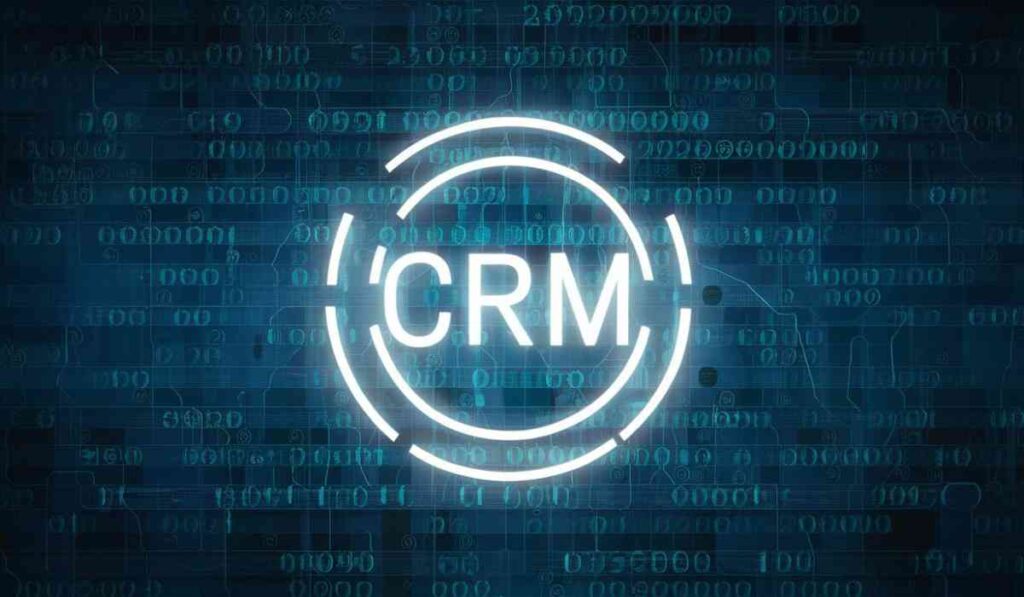Customer Relationship Management (CRM) software has evolved significantly, becoming an indispensable tool for businesses aiming to enhance customer relationships, streamline operations, and drive sales.
This article delves into how CRM software can revolutionize your business, the features to look for, and best practices to maximize its benefits.
Understanding CRM Software In 2024
In 2024, CRM software is a sophisticated platform that integrates AI and automation to provide a comprehensive view of customer interactions and data.
It helps businesses manage sales pipelines, customer service, and marketing campaigns more efficiently. The key to unlocking its power lies in understanding its capabilities and how to leverage them effectively.
Benefits Of CRM Software
CRM software offers numerous benefits that can transform the way businesses interact with customers and manage internal processes:
- Personalized Customer Experience: By leveraging customer data, businesses can tailor interactions to meet individual needs, creating more meaningful and engaging experiences.
- Data-Driven Decisions: CRM software provides detailed analytics and insights, enabling businesses to make informed decisions that enhance strategy and performance.
- Increased Revenue: Streamlining sales processes through automation and better lead management can significantly boost conversion rates and revenue.
- Operational Efficiency: Automating routine tasks such as follow-up emails and data entry saves time and reduces operational costs, allowing staff to focus on more strategic activities.
Key Features And Functionalities

To fully benefit from CRM software, it’s essential to understand its key features and functionalities:
- Contact Management: Centralized storage of customer information allows easy access and updates, ensuring that all interactions are based on the most current data.
- Interaction Tracking: Comprehensive tracking of customer interactions provides a complete history, helping businesses understand customer behavior and preferences.
- Lead Management: Effective lead management tools help track and nurture leads through the sales funnel, improving the chances of conversion.
- Automation: Automation capabilities reduce manual workload, increasing efficiency and consistency in customer communications.
- Analytics and Reporting: Robust reporting tools enable businesses to analyze sales performance and customer behavior, facilitating data-driven decision-making.
- Document Management: Centralized storage and easy access to documents related to customer interactions streamline workflows and improve organization.
Industries Benefiting Most from CRM
Various industries leverage CRM software to enhance their operations and customer interactions:
- Retail and E-Commerce: CRM tools help personalize marketing efforts, track purchase history, and manage customer feedback, leading to improved customer loyalty and sales.
- Financial Services: Managing client relationships and streamlining communication through CRM ensures that financial advisors can provide tailored services to their clients.
- Healthcare: CRM systems in healthcare enhance patient management by tracking interactions, scheduling follow-ups, and managing patient records efficiently.
- Real Estate: CRM solutions help real estate professionals track leads, manage property listings, and maintain client relationships, ultimately driving sales.
- Hospitality and Travel: By managing reservations, guest preferences, and feedback, CRM systems improve guest experiences and operational efficiency.
- Manufacturing: CRM software helps manufacturers streamline sales processes, manage distributor relationships, and enhance customer service.
Selecting The Right CRM Software

Choosing the right CRM software is critical to ensure it meets your business needs:
- Identify Core Features: Start by listing the essential features required to support your business operations and goals.
- Involve Your Team: Gather input from team members who will be using the CRM to ensure it meets their needs and enhances their workflow.
- Check Compatibility: Ensure that the CRM integrates seamlessly with your existing tools and software.
- Customization Options: Look for a CRM that offers customization to tailor the system to your specific business processes.
- Ease of Use: Select a user-friendly CRM with an intuitive interface to encourage adoption and reduce training time.
- Scalability: Choose a CRM that can grow with your business, accommodating increasing data and user numbers.
- Migration Support: Ensure the CRM provider offers support for migrating existing data to the new system.
- Security Measures: Evaluate the CRM’s data security protocols to protect sensitive customer information.
- Mobile Accessibility: Ensure the CRM is accessible on mobile devices to support remote work and on-the-go access.
Best Practices For Maximizing CRM Potential
Implementing CRM software effectively requires adherence to best practices:
- Set Clear Goals: Define what you want to achieve with your CRM implementation, such as improving customer satisfaction or increasing sales.
- Develop an Implementation Plan: Allocate sufficient time for setup, customization, and training to ensure a smooth transition.
- Customize Thoughtfully: Tailor the CRM to align with your business processes, avoiding unnecessary complexity.
- Maintain Clean Data: Regularly update and cleanse your data to ensure accuracy and reliability.
- Automate Wisely: Use automation to streamline routine tasks without compromising the personal touch in customer interactions.
- Train Your Team: Provide comprehensive training to ensure all users are comfortable and proficient with the CRM.
- Leverage Analytics: Utilize CRM analytics and reporting tools to gain insights and drive data-driven decisions.
- Enhance Customer Experience: Use CRM data to personalize interactions and improve customer satisfaction.
- Regular Audits: Periodically review and update your CRM setup to ensure it continues to meet your business needs.
The Importance Of Data Management

Effective data management is crucial for leveraging CRM software:
- Establish Governance Policies: Define clear guidelines for data entry, usage, and maintenance to ensure consistency and accuracy.
- Ensure Accuracy: Implement validation rules and regularly clean your data to maintain its integrity.
- Use Enrichment Tools: Enhance your data with additional insights from external sources to create a more complete customer profile.
- Leverage Analytics: Use CRM data for advanced analytics to uncover trends and inform strategic decisions.
- Segment and Personalize: Tailor communications and marketing efforts based on customer segments for more effective engagement.
- Monitor Performance: Track key metrics related to data usage and CRM performance to identify areas for improvement.
- Ensure Security and Compliance: Protect customer data with robust security measures and comply with relevant regulations to build trust and avoid legal issues.
Measuring CRM Success
To measure the success of your CRM implementation, track the following KPIs:
- User Adoption Rate: Monitor the percentage of employees actively using the CRM to gauge its acceptance and utility.
- Data Accuracy: Assess the reliability and completeness of your CRM data to ensure it supports effective decision-making.
- Customer Satisfaction: Measure customer satisfaction before and after CRM implementation to determine its impact on customer relationships.
- Lead Conversion Rate: Track the effectiveness of your CRM in converting leads into sales, indicating its impact on revenue growth.
- Return on Investment (ROI): Calculate the financial benefits of CRM implementation relative to its costs to evaluate its overall value to your business.
Future Trends In CRM Software

The future of CRM software includes several emerging trends:
- AI Integration: Enhanced AI capabilities will provide deeper insights and more sophisticated automation, improving customer engagement and operational efficiency.
- Mobile CRM: Improved mobile interfaces will enable seamless access to CRM tools on the go, supporting remote work and real-time data access.
- Data Security: As data breaches become more common, stronger security measures will be crucial to protect customer information and maintain trust.
- Predictive Analytics: AI-driven predictive models will help businesses forecast customer behavior and tailor their strategies accordingly.
- Personalized Experiences: Advanced personalization capabilities will enable businesses to deliver highly tailored interactions based on customer data.
- Voice Interfaces: Voice-enabled CRM features will provide a more intuitive and efficient way for users to interact with the system.
Conclusion
In 2024, CRM software stands as a vital tool for businesses across various industries, driving customer satisfaction, operational efficiency, and revenue growth.
By understanding its key features, selecting the right platform, and adhering to best practices, businesses can unlock the full potential of CRM technology.
Effective data management, regular performance audits, and leveraging advanced analytics are crucial for maximizing benefits.
As CRM software continues to evolve with AI integration, enhanced mobile capabilities, and stronger data security measures, staying ahead of these trends will ensure that your business remains competitive and customer-focused.
Embracing CRM software is not just about managing customer relationships but transforming the way you operate, engage, and grow in the digital age.
FAQs
How do I choose the right CRM?
Identify your business needs, involve your team, and ensure compatibility with existing tools.
What are the costs of CRM software?
Prices range from $7 to $300 per month, depending on features and deployment method.
How do I maintain my CRM?
Regularly update the software, back up data, and monitor performance.
What industries benefit most from CRM?
Retail, financial services, healthcare, real estate, hospitality, manufacturing, and telecommunications.
How does CRM software improve customer relationships?
By providing a comprehensive view of customer interactions, enabling personalized communication, and automating routine tasks.






